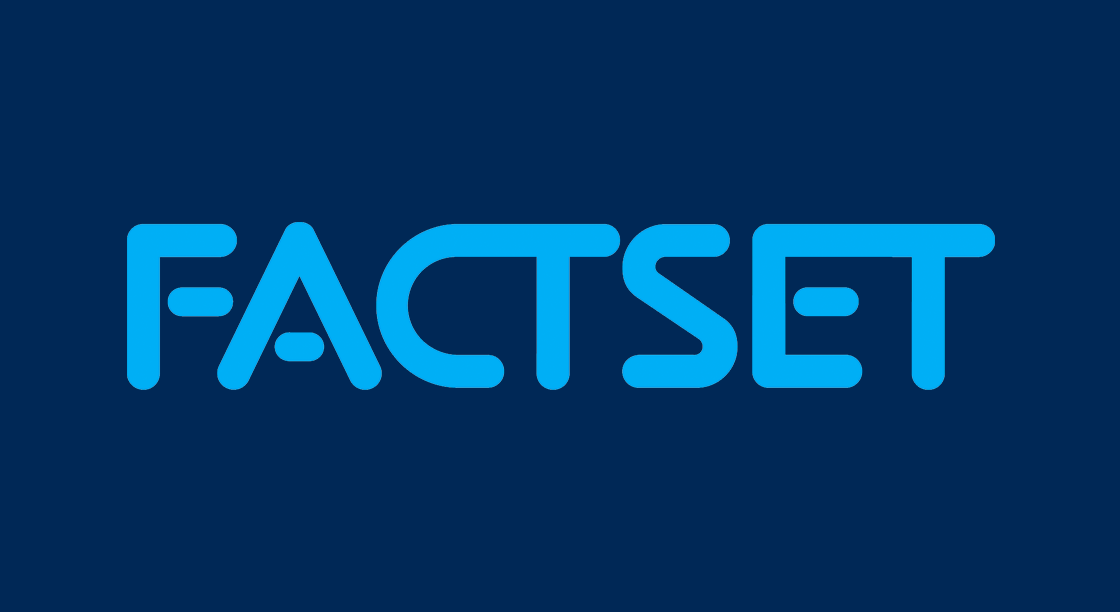In our last Insight article, we discussed black swan risks the mining industry faced as a result of its fixed operating locations. Risks related to extreme weather events, social license to operate, and governmental changes all have had demonstrated impacts on the returns generated by mining companies.
Mining as a global industry is deeply exposed to the politics of the nations in which they operate. However, assessing the quality and risk associated with each of these jurisdictions can be a nuanced and complex exercise. Surveys, such as the Fraser Institute’s Annual Survey of Mining Companies, have increasingly been used to evaluate “how mineral endowments and public policy factors such as taxation and regulatory uncertainty affect exploration investment.”
But difficulty in quantifying concepts—such as political stability and achieving statistically meaningful response rates—highlight just a few of the challenges in summarizing the complex political risks faced in the sector (as outlined by Söderholm et al.).
Figure 1: Mentions of “Fraser Institute’s Annual Survey of Mining Companies” in Company-Related Materials
Insight/2024/03.2024/03.26.2024_Mines%20and%20Mandates_Evaluating%20Political%20Risk%20in%20Mining/01-mentions-of-frasier-institutes-annual-survey-of-mining-companies-in-company-related-materials.png?width=1192&height=558&name=01-mentions-of-frasier-institutes-annual-survey-of-mining-companies-in-company-related-materials.png)
While such a survey can provide a starting point for understanding and framing jurisdictional risk, investors in the sector must also remain current on the dynamic political headwinds that can impact the valuations of mines and exploration properties. In 2024, a multitude of jurisdictions around the world will be heading to the polls, selecting new representatives in a climate where heightened geopolitical tension has had far-reaching consequences on markets and policies.
The purpose of this article is to highlight:
-
Ways in which politics impacted and shaped resource markets and mining companies in 2023.
-
Upcoming elections with potential implications for the mining sector.
-
Economic data that can further supplement the qualitative analysis needed to understand country performance and risk going into elections.
Evolving Mining Politics: 2023 in Review
A myriad of news came across the wire in 2023 and impacted the larger political narratives surrounding natural resource extraction and the mining sector more specifically. We highlight the shutdown of First Quantum Minerals Ltd.’s (FM-CA) Cobre Panamá mine, where protests following a newly negotiated and enacted mine contract with the Panamanian government led to the mine’s temporary closure and a withdrawal of their mining concession.
Now facing constitutionality challenges at the Supreme Court level, the mine and its operations have become part of larger political discussions of whether to even allow mining within the country and will be a key topic of consideration as citizens of Panama head to the polls in May 2024.
Figure 2: The Impact of Panamanian Protests and Supreme Court Rulings on First Quantum Minerals Ltd. (FM-CA)
Insight/2024/03.2024/03.26.2024_Mines%20and%20Mandates_Evaluating%20Political%20Risk%20in%20Mining/002-the-impact-of-panamanian-protests-and-supreme-court-rulings-on-firrst-quantum-minerals-ltd.png?width=1201&height=484&name=002-the-impact-of-panamanian-protests-and-supreme-court-rulings-on-firrst-quantum-minerals-ltd.png)
News coming from Latin American mining heavyweights Mexico and Chile highlighted that legislative change can disrupt even well-established mining jurisdictions. A new bill on overhauling Mexico’s mining regulation was introduced at the end of March 2023 and passed into law in April, changing the terms of mining concessions, requiring transfers of concessions to receive approval by the Ministry of the Economy, and requiring additional economic and administrative requirements to adjacent/impacted indigenous communities (amongst a plethora of other changes).
The move raised concerns from the Canadian Ministry of Commerce of its potential impact on Canadian investment in Mexico’s mining industry as multiple Canadian companies operate within the country. It also follows as the second major mining reform for the Mexican president following his 2022 move to nationalize lithium mining in the country.
Similar to Mexico in 2022, Chile made headlines in April 2023 with preliminary plans to increase government participation in the sector through the creation of a state lithium mining company and a national lithium strategy, tasking the state-owned copper miner (Codelco) and state mining firm (ENAMI) with managing the lithium interests. This included a mandate to renegotiate the country’s existing leases with both Sociedad Quimica y Minera de Chile S.A. (SQM-US) and Albemarle Corp. (ALB-US). A memorandum of understanding was reached by SQM and Codelco on December 27, 2023, however that was followed by a brief protest in January among local indigenous groups who weren’t included in the negotiations.
Within Africa, Gabon (a major supplier of manganese) and Niger (a supplier of uranium) underwent coups in 2023 while Mali (a supplier of gold) made major changes to its mining code. Additionally, Burkina Faso saw a change of the guard with a new mining minister and a new revised mining code looking to increase royalties in a higher commodity price environment despite an increase in security concerns curbing gold production.
As the new mining code in Mali is adopted, companies such as B2Gold Ltd. (BTO-US) felt the impact as additional exploitation permits for their Fekola mine have been delayed. Performance has been trailing since the firm’s 23Q2 financial results (Figure 2) where the announcement of the new mining code’s impact was made.
Figure 3: Change of Mining Code in Mali Impact on B2Gold Corp. (BTG-US) vs. VanEck Gold Miners ETF (GDX-US)
Insight/2024/03.2024/03.26.2024_Mines%20and%20Mandates_Evaluating%20Political%20Risk%20in%20Mining/03-change-of-mining-code-in-mali-impact-on-b2gold-corp-vs-vaneck-gold-miners-etf.png?width=1203&height=627&name=03-change-of-mining-code-in-mali-impact-on-b2gold-corp-vs-vaneck-gold-miners-etf.png)
Lastly, we highlight that while domestic politics have evolved with respect to mining policy in these key mining nations, there has also been an emergence of growing global protectionism. This has impacted investment in the sector as seen with:
New Year, New Regimes: Key Elections in 2024
While 2023 was eventful with respect to political activity, 2024 may yet supersede it as a packed global election calendar leads to a democratic supercycle with over 70 nations conducting elections this year, according to the International Foundation for Electoral Systems.
In Table 1, we highlight a selection of key jurisdictions where elections are anticipated later this year and where a variety of metals are produced and mined.
Table 1: Key Metals and Mining Jurisdictions with Elections in 2024
Insight/2024/03.2024/03.26.2024_Mines%20and%20Mandates_Evaluating%20Political%20Risk%20in%20Mining/04-key-metals-and-mining-jurisdictions-with-elections-in-2024.png?width=1209&height=386&name=04-key-metals-and-mining-jurisdictions-with-elections-in-2024.png)
Within Indonesia, where elections were completed in mid-February, the election of Prabowo Subianto likely means a continuance of national policies on down-streaming metal production. Building off 2020 policies that banned exports of unprocessed nickel and led to an expansion in nickel mining and smelting production within Indonesia (which now produces just under 50% of world nickel supply, as shown in Figure 4), the country’s new president is expected to expand these policies across other metals.
Figure 4: Growth in Indonesian Mined Nickel Production
Insight/2024/03.2024/03.26.2024_Mines%20and%20Mandates_Evaluating%20Political%20Risk%20in%20Mining/05-growth-in-indonesian-mined-nickel-production.png?width=1211&height=426&name=05-growth-in-indonesian-mined-nickel-production.png)
In Mexico, new proposed constitutional changes by sitting president Andres Manual Lopez Obrador ahead of June elections include seeking to ban the practice of open pit mining. While in South Africa, multiple miners have looked to cut jobs and capital investment amid lower metal prices. Both set the stage for mining-specific policy as a key discussion point heading into their respective elections. And in the United States, President Biden’s support for investment in critical metals may also be vulnerable to a potential change in the administration in November.
Worldwide, the development of natural resources often turns into a political football in the election run-up. While the jurisdictions we highlighted have a nuanced understanding of the economic benefits of being a producer of natural resources, in jurisdictions where the mining industry is more nascent (such as in Panama) the politicization of natural resource extraction can become more pronounced.
Exploring Additional Metrics of Jurisdictional Risk
Understanding the political landscape is paramount in understanding the potential risks and headwinds that election periods can create for miners. However, an analysis that merely focusses on political dynamics is incomplete.
The economics of a jurisdiction (and the business environment therein) also play an integral role in determining the risk factors and themes that could influence an election and the impact on mining. We highlight a few additional sources of economic data (amongst a plethora of data available) from the International Monetary Fund as well as Transparency International’s Corruption Perception Index. From these we can glean a snapshot of the current state of affairs (Table 2).
Table 2: Selection of Economic Data for Jurisdictions with Elections in 2024
Insight/2024/03.2024/03.26.2024_Mines%20and%20Mandates_Evaluating%20Political%20Risk%20in%20Mining/06-selection-of-economic-data-for-jurisdictions-with-elections-2024.png?width=1188&height=684&name=06-selection-of-economic-data-for-jurisdictions-with-elections-2024.png)
As it aims to measure public sector corruption, a country's Corruption Perception Index can help to characterize the operational landscape of mining operations and exploration. High levels of corruption can result in unfair competition in permitting and license approval and may imply the potential for increased operational costs (such as extraordinary payments) and additional legal risks.
Low GDP per capita can highlight economic instability, which may lead to policy alterations that impact business continuity among mining operators. Moreover, socio-economic issues stemming from low GDP per capita might fuel labor strikes and public unrest that can disrupt mining operations.
In countries with high inflation, operational costs may surge due to increased labor and utility expenses. Additional concerns are currency stability and a repatriation of profits (whether via the introduction of additional royalties, taxation, or government ownership). Inflation also introduces a level of unpredictability in prices, which can disrupt financial forecasting and planning.
Lastly, beyond inflation, high rates of unemployment can lead to social tensions and fuel local opposition against mining activity. It can also provoke an upsurge in informal or illegal mining, potentially leading to security issues.
Conclusion
While political change can impact all sectors of a nation’s economy, mining is unique due to the fixed nature of its operations. Attitudes towards natural resource extraction and development can change rapidly and co-mingle with political sentiments. This requires investors to maintain excellent peripheral vision and watch for the qualitative and quantitative headwinds and tailwinds the companies in their portfolios may face. Investors must be cognizant of geopolitical developments, economic cycles, and mine-level technical details, as the nexus of all these factors defines the most pressing risks facing mining companies today.
The Databook supporting the figures presented here can be found in the FactSet Workstation under the contributor “FactSet Deep Sector Insights.”
This blog post is for informational purposes only. The information contained in this blog post is not legal, tax, or investment advice. FactSet does not endorse or recommend any investments and assumes no liability for any consequence relating directly or indirectly to any action or inaction taken based on the information contained in this article.



Insight/2024/03.2024/03.26.2024_Mines%20and%20Mandates_Evaluating%20Political%20Risk%20in%20Mining/01-mentions-of-frasier-institutes-annual-survey-of-mining-companies-in-company-related-materials.png?width=1192&height=558&name=01-mentions-of-frasier-institutes-annual-survey-of-mining-companies-in-company-related-materials.png)
Insight/2024/03.2024/03.26.2024_Mines%20and%20Mandates_Evaluating%20Political%20Risk%20in%20Mining/002-the-impact-of-panamanian-protests-and-supreme-court-rulings-on-firrst-quantum-minerals-ltd.png?width=1201&height=484&name=002-the-impact-of-panamanian-protests-and-supreme-court-rulings-on-firrst-quantum-minerals-ltd.png)
Insight/2024/03.2024/03.26.2024_Mines%20and%20Mandates_Evaluating%20Political%20Risk%20in%20Mining/03-change-of-mining-code-in-mali-impact-on-b2gold-corp-vs-vaneck-gold-miners-etf.png?width=1203&height=627&name=03-change-of-mining-code-in-mali-impact-on-b2gold-corp-vs-vaneck-gold-miners-etf.png)
Insight/2024/03.2024/03.26.2024_Mines%20and%20Mandates_Evaluating%20Political%20Risk%20in%20Mining/04-key-metals-and-mining-jurisdictions-with-elections-in-2024.png?width=1209&height=386&name=04-key-metals-and-mining-jurisdictions-with-elections-in-2024.png)
Insight/2024/03.2024/03.26.2024_Mines%20and%20Mandates_Evaluating%20Political%20Risk%20in%20Mining/05-growth-in-indonesian-mined-nickel-production.png?width=1211&height=426&name=05-growth-in-indonesian-mined-nickel-production.png)
Insight/2024/03.2024/03.26.2024_Mines%20and%20Mandates_Evaluating%20Political%20Risk%20in%20Mining/06-selection-of-economic-data-for-jurisdictions-with-elections-2024.png?width=1188&height=684&name=06-selection-of-economic-data-for-jurisdictions-with-elections-2024.png)


Insight/Author%20Bios/matthew-dolowy-busch-cropped.jpg)
